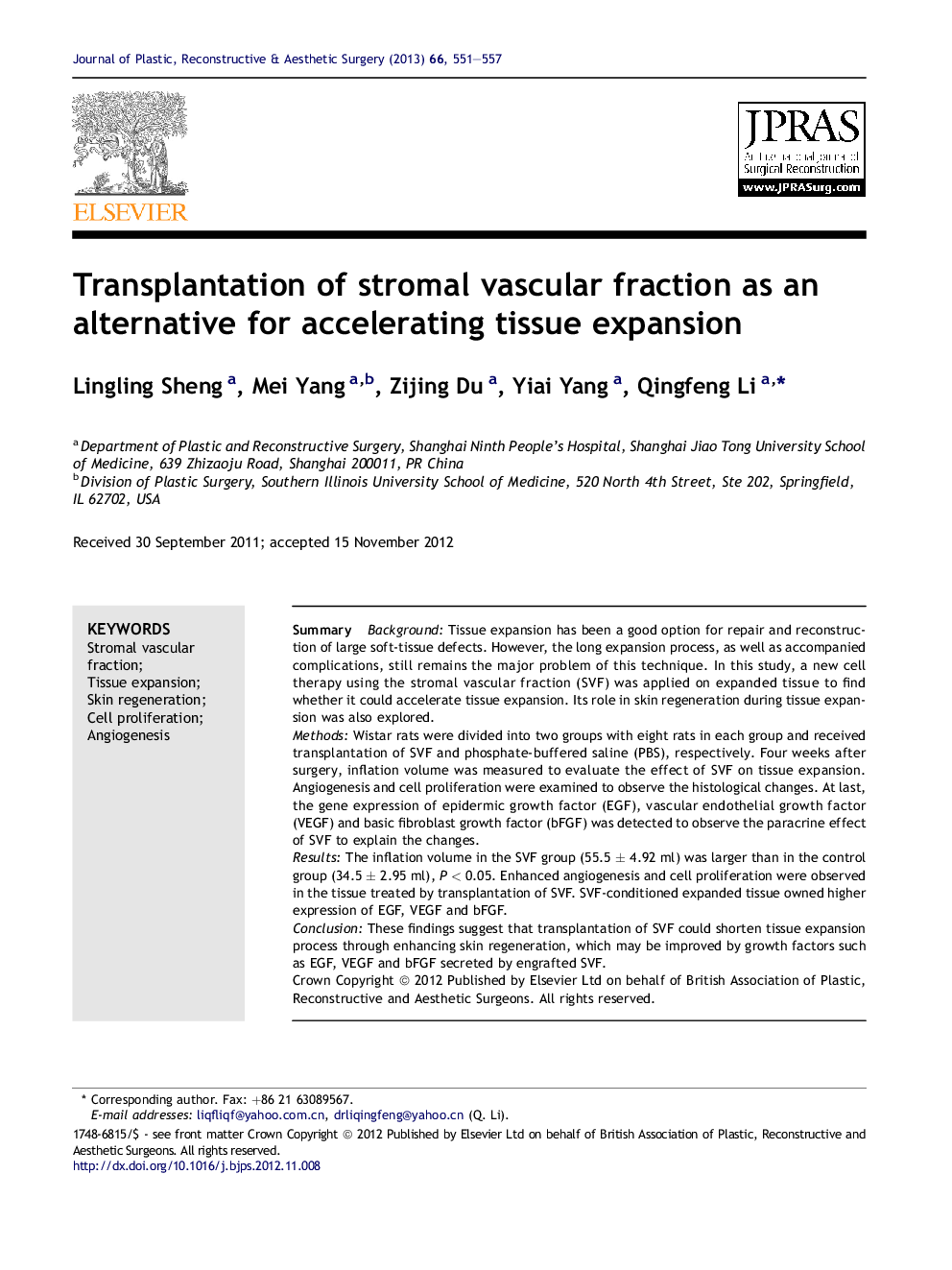| Article ID | Journal | Published Year | Pages | File Type |
|---|---|---|---|---|
| 4118418 | Journal of Plastic, Reconstructive & Aesthetic Surgery | 2013 | 7 Pages |
SummaryBackgroundTissue expansion has been a good option for repair and reconstruction of large soft-tissue defects. However, the long expansion process, as well as accompanied complications, still remains the major problem of this technique. In this study, a new cell therapy using the stromal vascular fraction (SVF) was applied on expanded tissue to find whether it could accelerate tissue expansion. Its role in skin regeneration during tissue expansion was also explored.MethodsWistar rats were divided into two groups with eight rats in each group and received transplantation of SVF and phosphate-buffered saline (PBS), respectively. Four weeks after surgery, inflation volume was measured to evaluate the effect of SVF on tissue expansion. Angiogenesis and cell proliferation were examined to observe the histological changes. At last, the gene expression of epidermic growth factor (EGF), vascular endothelial growth factor (VEGF) and basic fibroblast growth factor (bFGF) was detected to observe the paracrine effect of SVF to explain the changes.ResultsThe inflation volume in the SVF group (55.5 ± 4.92 ml) was larger than in the control group (34.5 ± 2.95 ml), P < 0.05. Enhanced angiogenesis and cell proliferation were observed in the tissue treated by transplantation of SVF. SVF-conditioned expanded tissue owned higher expression of EGF, VEGF and bFGF.ConclusionThese findings suggest that transplantation of SVF could shorten tissue expansion process through enhancing skin regeneration, which may be improved by growth factors such as EGF, VEGF and bFGF secreted by engrafted SVF.
